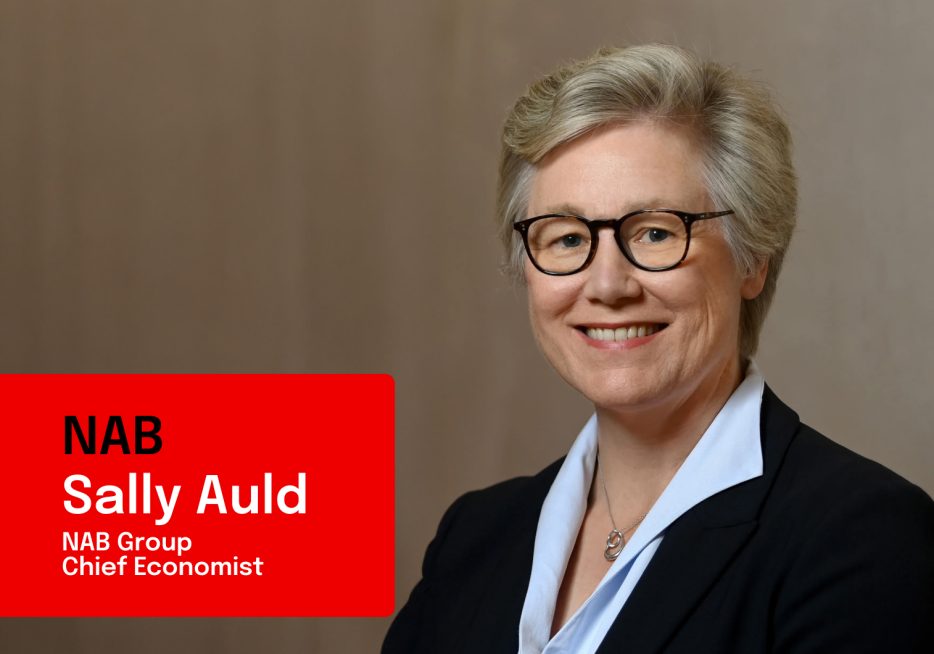Long-term signal vs. Short-term noise


Insight
Strong performance in the emerging technology sector shows how NAB is helping to create a robust industry ecosystem and deliver on what it takes to make it as a new digital business.
When NAB committed $2 billion in debt funding to help emerging technology companies build and grow their businesses, the aim was to address a key economic challenge for Australia’s future over five years.
After supporting some of the biggest names in the sector, the 2019 commitment has surpassed its target early – in just over two years – with a cumulative $2.43 billion debt funding delivered1 that places new technology financing firmly in the bank’s DNA and business practice.
NAB’s Head of Emerging Technology Clients Lu Li says 2021 was the “year of the fintech”, with the strong performance pointing to a bright future for the homegrown tech industry as more start-ups pursue their growth trajectory to join the likes of Afterpay and Zip.
“I’m very excited and proud of this milestone,” Li says. “It’s a great outcome and it’s really exciting to see we have supported a number of fast-growth fintech companies at a very critical stage of their journey. We will continue supporting them as they further scale up all the way to maturity.”
The majority of the commitment has been deployed supporting capital intensive, fast growth, early stage fintech companies via wholesale warehouse securitisation solutions. The main fintech activity is in the lending space for business and consumers, while innovations from software-as-a-service (SaaS) providers, climate tech / clean tech and broader ESG space also remains a focus.
“As a customer value proposition it’s a whole-of-growth-cycle offering,” Li says. “The funding we provide can be transformative for early-stage fintechs, in that it helps companies achieve a lower cost of capital, increase debt to fund rapid growth, diversify funding partners and therefore risk.
“This improves overall margins and provides more cost-effective and innovative finance solutions to the end customers.”

Because of the nature of start-ups, this initial engagement and assessment can take longer than for traditional clients, depending on how developed the business model is at the outset. This includes fintech and a wide range of emerging tech companies across their funding, working capital, risk management and transactional banking needs.
Li says the focus for NAB is to leverage its deep sector expertise and whole-of-bank product capabilities to identify and support clients with the greatest likelihood of achieving a successful long-term outcome.
“We want to look for how we can support what we call ‘future winners’,” she says. “It doesn’t have to be anything too shiny in terms of tech itself – it all goes back to the fundamentals in terms of how you meet consumer needs and how you can use tech to really enable that and connect products with end users.”
Li says the assessment framework for clients includes the potential market size and growth outlook, as well as having a clear point of difference, and a strong, scalable strategy and execution.
With an ongoing partnership over the growth cycle, it also involves consideration of the management team, investor backing and, importantly, the regulatory and compliance obligations before deciding how to proceed.
“We look at the framework and then we overlay credit risk due diligence on top,” Li says. “Often when we talk to founders of prospects it’s almost as if you need to have a venture capital mindset but at the same time have a credit risk consideration.”
Looking at the activity in 2021 as well as the significant amount of ongoing VC investment, Li says Australia is well-placed as a future tech hub despite recent market movements. The nation’s relatively stable financial and regulatory environment and regional ties to Asia for expansion is helping to drive what is set to become a material pillar of the economy, she says.
For Li, the trend towards embedded finance, property tech, as well as ESG and tokenisation developments across key sectors, are setting up future companies for success. Private capital and M&A activity will continue to drive consolidation and economies of scale, she says.
With warehouse securitisation forming such a pivotal role in delivering on the commitment, Li notes the recent industry recognition for NAB’s market-leading capability as Australian Securitisation House of the Year for the tenth year running at the 2021 KangaNews Awards.
NAB’s Global Head of Securitisation Origination, Sarah Samson, says it’s exciting working with tech start-ups, taking what is sometimes little more than “an idea on the back of a serviette and a couple of chairs in an office” all the way to multi-million-dollar enterprises accessing capital markets.
“To be able to get mainstream financing through securitisation from a domestic major bank is absolutely game-changing,” Samson says.
She says Australia’s entrepreneurial tech culture, coupled with structural changes in data around open banking and comprehensive credit reporting, have all helped to drive real opportunities, with more to come.
For Li, the exciting part is working with founders who are committed to solving business and consumer challenges through tech, and then bringing these to Australia and the world.
She says seeing the passion, commitment, growth mindset and work ethic present is a fantastic motivation.
“We will continue to support quality tech businesses and grow with our clients so we are well-equipped to support future waves of emerging tech that will reshape the future. It’s now part of our DNA,” Li concludes.
____________
1 As of 30 September 2021. NAB 2021 Sustainability Data Pack.
© National Australia Bank Limited. ABN 12 004 044 937 AFSL and Australian Credit Licence 230686.